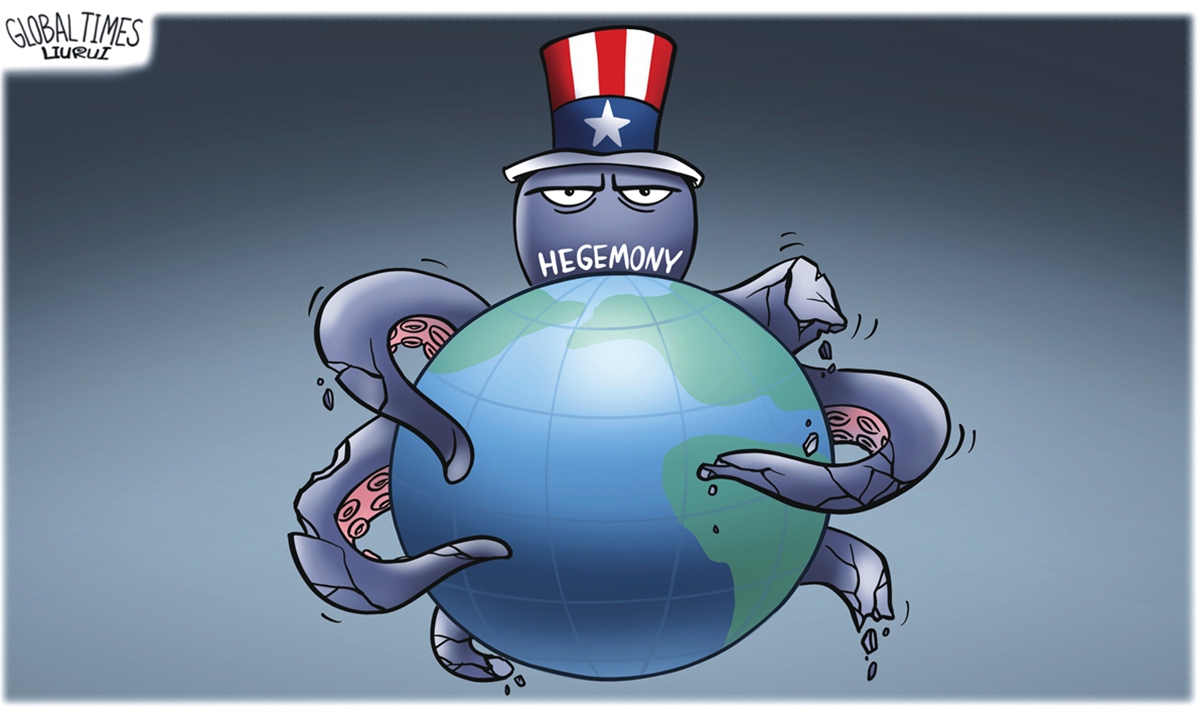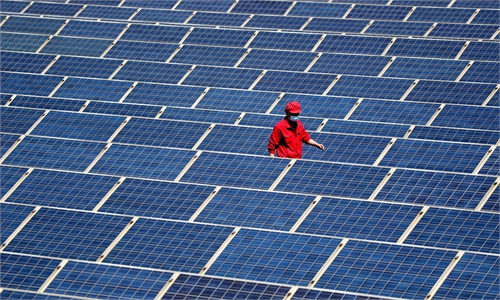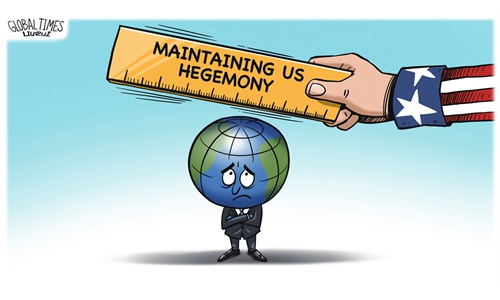
Illustration: Liu Rui/GT
The Group of 77 developing countries (G77) and China recently concluded a two-day summit in Havana, Cuba, where developing nations called for more cooperation and declared September 16 as the annual "Day of Science, Technology and Innovation in the South." These are the latest efforts by developing countries to challenge developed countries' technological domination.The final declaration of the G77 and China reiterates long-standing demands for a more equitable international economic and social order, which it states is impossible without ending developed countries' technological domination, Reuters reported.
Developed countries now dominate as providers of critical and cutting-edge technologies. Cuban President Miguel Diaz-Canel, whose country holds the organization's presidency this year, was quoted by Reuters as saying that "creation and dissemination of advanced digital production technologies worldwide remain concentrated, with minor activity in most of the emerging economies."
The ever-growing battle for technological advantage and supremacy continues. With companies in developing countries catching up to the US-led West in certain technology fields, hegemony-minded Washington has started to accelerate its suppression of and crackdown on competitors in developing countries in order to prolong America's technological hegemony in the world.
An overall "decoupling" seems unlikely. Yet, under the influence of some protectionists in the US, there's a rising possibility of "decoupling" in the high-technology field. In this process, China is not the only victim. Washington's ultimate goal is to maintain its technological hegemony and rebuild US-centric high-tech supply chains. Any developing country that achieves technological breakthroughs may become a target for US suppression.
The world should create an open, fair, and non-discriminatory environment for the development of science and technology, which requires developing countries to work with each other to resist decoupling and technological barriers. As reported by Reuters, the G77, which is the largest group within the UN by population and the number of members, called for a special meeting to tackle the issues raised at the just-concluded summit. Hopefully, more institutional arrangements can be made to strengthen technological and scientific cooperation among developing countries.
Science, technology and innovation can be driving forces for inclusive development as countries strive to rebuild their economies from the COVID-19 pandemic. In that sense, the call to strengthen technological and scientific cooperation is timely as the US-led West disrupts global high-tech supply chains through an economic decoupling.
While strengthening South-South cooperation, developing countries should scale up domestic innovation and talent recruitment abroad to bolster their technological prowess. A few developing nations are showing strong capabilities to use, adopt and adapt frontier technologies, but most are lagging behind. Developing countries should increase their expenditure on research and development (R&D), which is the backbone of innovation. In a global community built on technology, more than a few consider increasing expenditure on R&D to be a shortcut to economic prosperity.
Although there is a certain gap between developed and developing countries, as long as developing countries maintain stable growth of R&D expenditure, they will sooner or later be able to improve their independent innovation capability and move up in the global high-tech supply chain.
As an example, the sudden presales of Huawei's Mate 60 Pro smartphone have ignited a fervent discussion, serving as an important symbol of Huawei's insistence on independent innovation in the face of US suppression. The Chinese tech giant has reportedly replaced more than 13,000 parts in its products that were hit by US trade sanctions.
In the past few weeks, Chinese consumers have flooded Huawei stores to snap up the new models. The success of Mate 60 is expected to speed up the development of the entire Huawei mobile phone industry chain, and it offers opportunities for Chinese domestic and foreign enterprises in the industry chain.
At a time when Washington's "decoupling" push results in reshaping global industry chains, hopefully developing economies can not only survive the difficulties and challenges by strengthening South-South cooperation, but can also push the reorganization of the global industry chain in a direction that serves their interests by improving home-grown innovation. Only in this way can developing countries end developed countries' technological domination to achieve technological independence.



